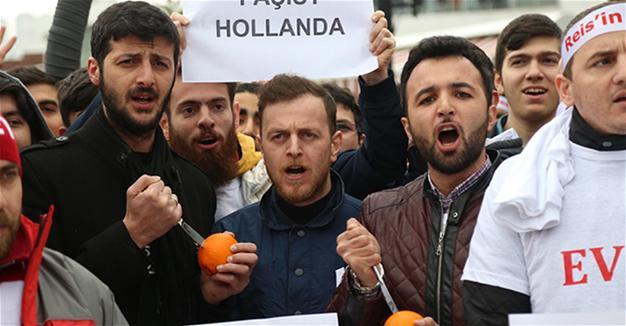New Diplomacy 101 for Dummies
Nazlan Ertan - nazlanertan@gmail.com
 Forget diplomats, academics and foreign correspondents! In Turkey, it is the barbers and the cab drivers who always know what to do in international relations. Ever since I stepped – no, was pushed – into international relations as a timid diplomatic correspondent back in the 1990s, those two professional groups have been sure that if they were just given a free rein in diplomacy, they would be able to carry their communication skills into the international arena. After all, haven’t they been dealing with difficult people – the old man who does not know where he needs to go, the hysterical blonde mama worried about menopause and competition from young people and the boastful CEO who is desperately trying to cover his bald spot – all their lives?
Forget diplomats, academics and foreign correspondents! In Turkey, it is the barbers and the cab drivers who always know what to do in international relations. Ever since I stepped – no, was pushed – into international relations as a timid diplomatic correspondent back in the 1990s, those two professional groups have been sure that if they were just given a free rein in diplomacy, they would be able to carry their communication skills into the international arena. After all, haven’t they been dealing with difficult people – the old man who does not know where he needs to go, the hysterical blonde mama worried about menopause and competition from young people and the boastful CEO who is desperately trying to cover his bald spot – all their lives?So, faced with his professional nous, there you are in the barber’s chair, unable to tell your barber just where you want your highlights because it would mean interfering in his profession. By contrast, off he goes to tell you why Turkey, if it had any sense, would have suspended the Customs Union with the EU long ago and joined the Shanghai Five. They also have a high grasp of all the conspiracy theories that would put Dan Brown to shame.
Thus, when I learned that a new Barbers Museum was being opened in İzmir, I rushed there to get some sound advice on how Turkey could solve its problems with EU member states. After all, what I learned in the political science departments of Middle East Technical University and Université Libre de Bruxelles no longer provides the right tools in the diplomatic world of the 21st century. The new age, where leaders talk about building walls rather than bridges, clearly requires a new style that is not in Satow, the so-called diplomatic bible written by a British diplomat in the early 20th century.
So here is the sum of ideas that I have gathered – the alternative Diplomacy 101 from the mouth of the non-liberal non-elite – on crisis management in diplomacy:
1. Theory of non-containment: Never, ever try to contain an international crisis, particularly if it is merely a verbal one. On the contrary, drag in the neighbors, regional cooperation organizations, principles/values, dual citizens and, of course, the refugees. Go for an all-out response. The first one to apologize loses face/votes.
2. Learn from history: Use the Sèvres Treaty as the root of all European action against Turkey and the undisputed evidence that “the Europeans” (a homogeneous group who have no problems among themselves and are united in their desire to cause problems to Turkey) have always wanted to carve Turkey up.
3. Do mention the war: All European countries are Nazis. Those who have suffered under Nazis are “remnants of Nazis.” And they are racists. All of them. Including the Greens. Shout Nazi, Nazi, Nazi. At everyone. See, good diplomacy.
4. People Power: Sovereign states may want to impose official sanctions on a foreign country, but do allow the public to come up with their own creative ideas. After all, it is the common intelligence of the people that has come up with brilliant methods of protest, such as showering French President François Hollande with protests on Twitter because of the way Holland blocked the entry of Turkish ministers. Hollande, Holland, what’s the difference? (See theory of non-containment) The creative powers of the people will deport Dutch cows, stab oranges, hack European websites and attack New Holland Trucks (a company founded in 1895 in New Holland, Pennsylvania, USA). I would have joined the public efforts and burnt my Van Gogh, had I one. I hardly think that burning my copy of Anne Frank’s Diary would have the same effect. (See point 3)
5. Name calling is in: The best leaders do it, including U.S. President Donald Trump. Calling Dutch leaders “tulips” (the Turkish equivalent of “pansy”) has such a witty ring to it, don’t you agree? Ah, do come up with a good slogan and shout it out loud. Something short, snappy and memorable. Remember, diplomacy is not what you say, but how you say it.
















